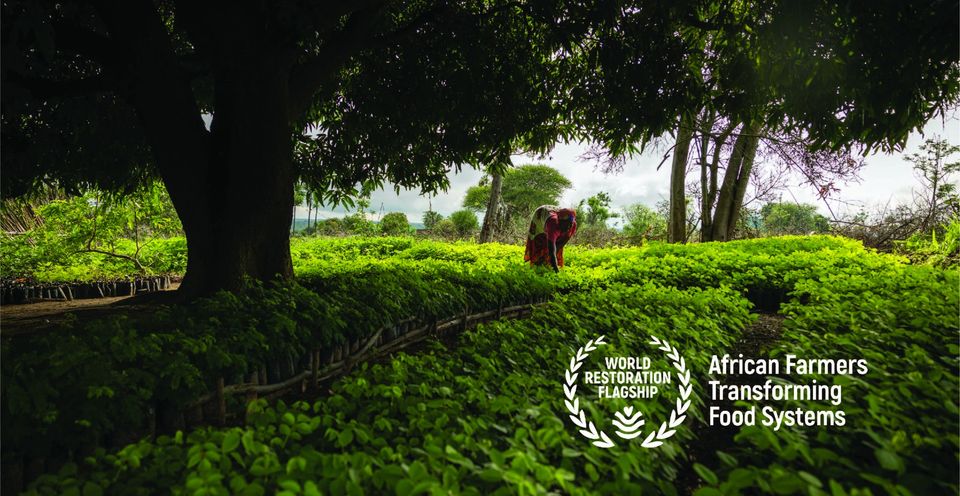
© 2026 Made for Planet • Privacy Policy • Terms & Conditions
Platform by Mission Sustainability
All categories Afforestation Trees for the Future


Maryland City, Maryland, United States
Trees for the Future is using regenerative agriculture training to sustainably end poverty for farmers & better the environment. As a UN World Restoration Flagship, TREES is recognized as one of the best large-scale ecosystem restoration efforts on the planet. The prestigious Flagship award is part of an effort by the UN Decade on Ecosystem Restoration to ensure that measurable progress is made on the UN’s environmental goals by 2030. The initiative works closely with tens of thousands of farmers living in poverty on degraded lands following decades of unsustainable agriculture practices, deforestation, pollution, and climate change. TREES provides training in a regenerative agroforestry technique called the Forest Garden Approach. In this four-year program, farmers receive training, seeds, and other resources, while planting thousands of trees and dozens of food and resource crops on their property. Participating farmers typically own one hectare of land or less.
Dave Deppner
Founder
Operating since 1989
344,000,000
Trees Planted
340,000
People Impacted
100,338
Acres restored
Eco-system
Forests
Agricultural Lands
Villages
Sectors
Community Resilience
Food Security
Climate Change Mitigation
Carbon Offsetting
Sustainable Agriculture
Suitable for
Type of work
Transparency of work
Method and technique
Trees for the Future (TREES) employs a variety of methods and techniques to achieve its reforestation and sustainable agriculture goals, most notably through their Forest Garden Program.The Forest Garden is an agroforestry system that combines tree planting with sustainable agricultural practices to restore degraded land and improve food security for smallholder farmers. This approach improves soil health, reduces erosion, and provides food, fodder, fuel, and other resources to farmers. Trees are planted alongside crops, improving biodiversity and allowing crops and trees to complement each other. This promotes better land utilization and higher yields. Organic materials like leaves and crop residues are spread over the soil to retain moisture, suppress weeds, and add nutrients as the material decomposes. Farmers are encouraged to collect and store rainwater to use during dry periods, which reduces the reliance on external water sources. TREES helps farmers set up local tree nurseries, where they can grow seedlings before transplanting them into their Forest Gardens. Farmers receive training on how to care for and plant the seedlings in a way that ensures their survival and growth. TREES selects a wide variety of tree species for each Forest Garden, including fast-growing trees for quick results and slow-growing species for long-term sustainability. The organization promotes planting trees that provide various benefits, such as fruit trees for food, nitrogen-fixing trees to enrich the soil, and hardwood trees for timber. TREES offers extensive training to farmers on agroforestry, sustainable farming, and business skills. This ensures that farmers understand how to plant and care for their crops and trees. The Forest Garden model increases climate resilience by diversifying crops and creating a more stable and productive agricultural ecosystem, helping communities withstand extreme weather events.
Found any error in information about this organisation?
Are you owner of Trees for the Future?
Similar companies

Outland Tree Planting
Thunder Bay, Ontario, Canada
Outland is a leading reforestation company in Canada, planting millions of trees annually. They focus on sustainable forest restoration and provide workers with training, safe conditions, and excellent earning opportunities, making it an ideal company for experienced tree planters.

Project Nelda
Pune, Maharashtra, India
20 Words Project Nelda focuses on reforestation, ecosystem restoration, and community-driven environmental initiatives to combat climate change and biodiversity loss. 50 Words Project Nelda is an environmental organization dedicated to large-scale reforestation and ecosystem restoration. By integrating scientific methods, community engagement, and sustainable practices, the project aims to restore degraded lands, promote biodiversity, and support local livelihoods. Their initiatives also focus on carbon sequestration and environmental education to address climate change.

Medius Earth
Bengaluru, Karnataka, India
Medius Earth have high-quality natural capital projects that address climate change & biodiversity loss through economic development. Their community-centric approach combines scientific methods, systems & design thinking, and sustainable finance.

GForest by GCash
Manila, Luzon, Philippines
GForest by GCash is a sustainability initiative that integrates environmental action with financial transactions, specifically designed to encourage users to contribute to reforestation efforts in the Philippines. The initiative not only helps mitigate climate change but also raises awareness among users about the importance of sustainable practices. By turning everyday financial activities into opportunities to support environmental conservation, GForest by GCash has successfully merged technology with sustainability, creating a positive impact on both the community and the environment.

Forest Creators
Mumbai, Maharashtra, India
We at Forest Creators believe that Development and Afforestation are not mutually exclusive, we want to demonstrate this by giving forests a new definition; one that is relevant in this rapidly developing world. We want development, but we also want out nature to be preserved. We want Factories, But we also want to be Carbon Neutral manufacturing products. We want Better & Wider Roads, Rail & air connectivity to reach our loved ones faster,safer but we also want to save the earth from the green house emissions. We believe it is time to shift from manicured landscapes to purpose based plantations that contribute to better air quality, water conservation, checking global warming and supporting the overall ecosystem. Forest Creators is creating Miyawaki forests that are 100% organic, wild,fast growing & self sustainable. We wish to Create a new definition of forests – forests that are compact and modular; forests that can be ‘inserted’ in every empty spaces around us. We shouldn’t be heading out of our everyday living/working areas to enjoy the nature. We wish that Nature should be part of our everyday life. We are thankful to our Mentor, our teacher, our well wisher Shri. Shubhendu Sharma of Afforestt for guiding us in 2014 to create our first Myawaki Forest of 1500 trees. And we haven’t stopped since & till date planted & influenced States & Industries & individuals to plant more then a million trees by creating Miyawaki forests across India. At our Not for Profit Foundation, Enviro Creators Foundation, We are now driven with a single Mission :10 Crore trees by 2025. And help Mother nature restore the ecosystem & try & make this world a better place for our future generations.